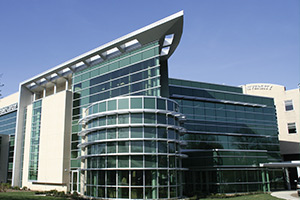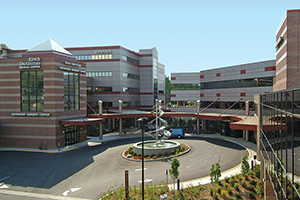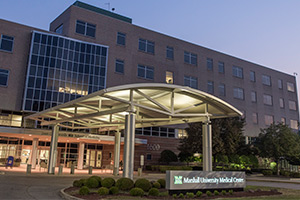Primary bone cancer is cancer that starts in your bones. It is also sometimes just called bone cancer. Primary bone cancer is different from secondary, or metastatic, bone cancer, which starts in another part of the body and spreads to the bones. Primary bone cancers are quite rare in adults. Most of the time when an adult has cancer in the bones, it spread there from another part of the body.
The main types of bone cancer are:
Anyone can get primary bone cancer. But some factors can increase your risk for it. These include:
Symptoms of primary bone cancer usually develop slowly over time. They depend on the type, location and size of the tumor. Here are some common symptoms:
Many of these may be caused by other health problems. But it is important to see your health care provider if you have these symptoms. Only a health care provider can tell if you have cancer.
If your health care provider thinks you may have primary bone cancer, you will need certain exams and tests to be sure. Your health care provider will ask you about your health history, your symptoms, risk factors and family history of disease. He or she will also give you a physical exam. You may also have one or more tests, such as an x-ray or other imaging tests.
A biopsy is the only sure way to tell for sure if you have bone cancer. A biopsy can also help the doctor tell if the tumor is a primary or secondary bone cancer. (A secondary bone cancer is one that has spread to the bone from another part of the body.) Small pieces of tissue are taken out from the tumor and checked for cancer cells. Your results will come back in about 1 week.
After a diagnosis of bone cancer, you’ll likely have other tests. These help your health care providers learn more about your cancer. They can help determine the stage of the cancer. The stage is how much and how far the cancer has spread (metastasized) in your body. It is one of the most important things to know when deciding how to treat the cancer.
Once your cancer is staged, your physician will talk with you about what the stage means for your treatment.
Your treatment choices depend on the type of primary bone cancer you have, test results and the stage of the cancer. The goal of treatment is may be to cure you, or control the cancer, or help ease problems caused by the cancer. Talk with your healthcare team about your treatment choices, the goals of treatment, and what the risks and side effects may be. Other things to think about are if the cancer can be removed with surgery and your overall health.
Types of treatment for cancer are either local or systemic. Local treatments remove, destroy, or control cancer cells in one area. Surgery and radiation are local treatments. Systemic treatment is used to destroy or control cancer cells that may have traveled around your body. When taken by pill or injection, chemotherapy is a systemic treatment. You may have just one treatment or a combination of treatments.
Bone cancer may be treated with:
Talk with our bone cancer team--Felix H. Cheung, MD, and Bobby Marcum, FNP-C--about your treatment options. Make a list of questions. Think about the benefits and possible side effects of each option. Talk about your concerns with your health care provider before making a decision.
Clinical Interests:
Locations:
Clinical Interests:
Locations:

An outpatient department of Cabell Huntington Hospital
1400 Hal Greer Blvd.
Huntington, WV 25701
Phone: 304.399.6500

King's Daughters Medical Center
Medical Plaza B
613 23rd Street, Suite G30
Ashland, KY 41101
Phone: 606.327.0036

Holzer Medical Center
100 Jackson Pike
Gallipolis, OH 45631
Phone: 855.446.5937

A provider-based department of Cabell Huntington Hospital
Marshall University Medical Center
1600 Medical Center Drive
Suite G500 (Ground Floor)
Huntington, WV 25701
Phone: 304.691.1262

Marshall Health - South Charleston
414 Greenway Avenue
2nd Floor
South Charleston, WV 25309
Phone: 304.342.3891